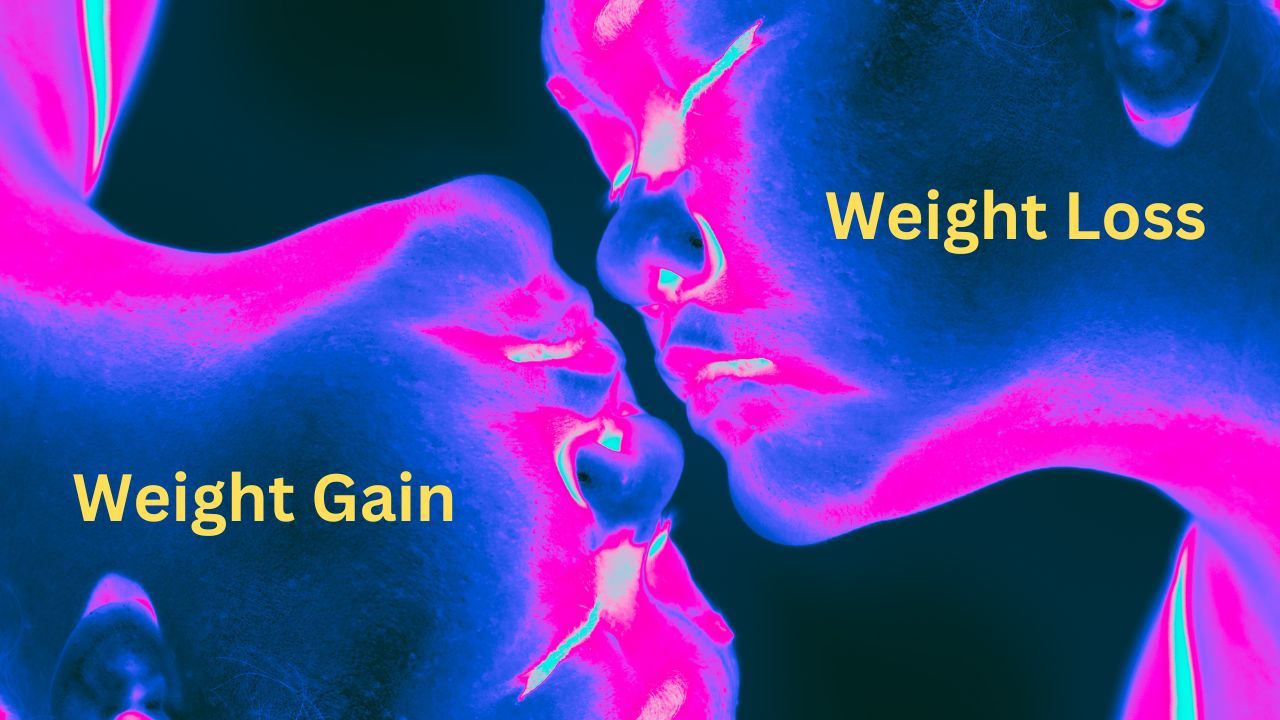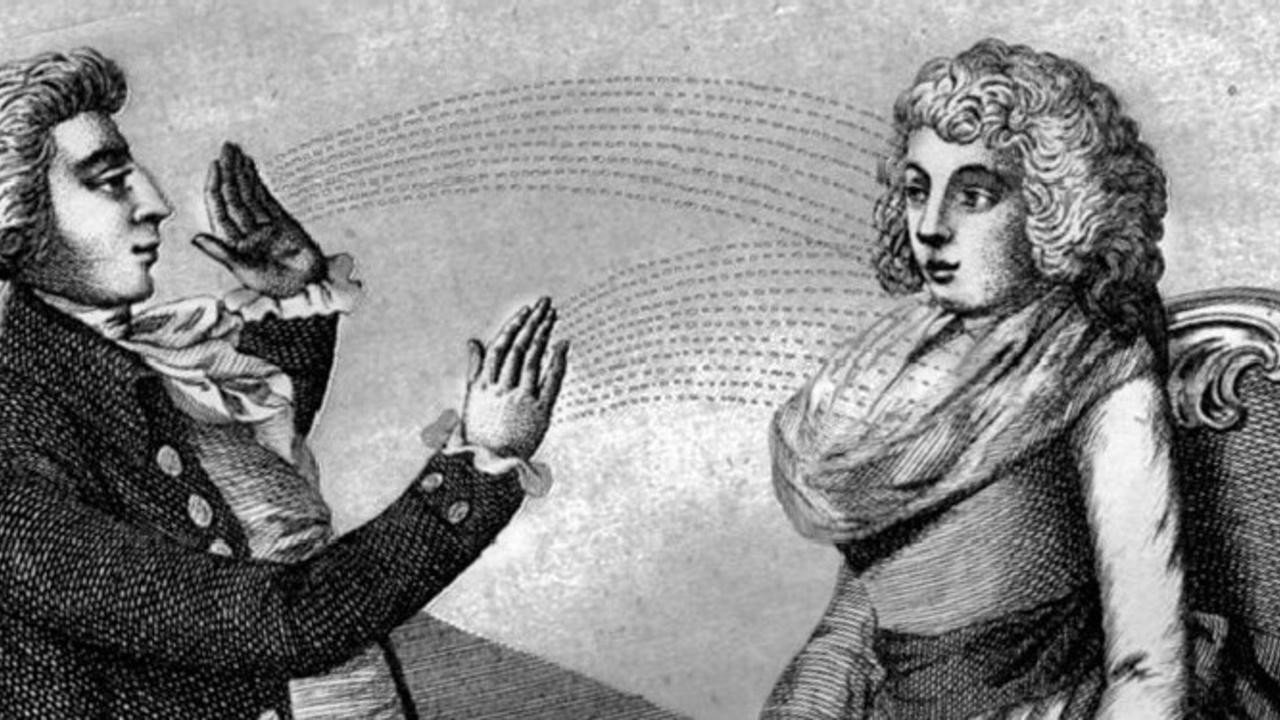What part of the mind causes weight loss and weight gain?

You and I are not the only ones trying to lose weight. According to some studies, there are about 150 million American adults who are overweight, obese, or severely obese. Out of those, only 60 million of us are actively working on losing weight and remodeling the body, unfortunately not with much success.
People start diets and exercising, but eventually drop out of the program. The big question is: Why? Why do we drop out of the program?
There are some physical and some mental reasons why people drop out of their chosen method to adjust their bodies. One of the most potent motivators of human behavior is hunger. Hunger can cause a person to actually kill; in fact we kill animals, we kill plants to eat and satiate hunger.
Hunger is an extraordinarily powerful motivator of behavior. When we are hungry enough, long enough, we eat anything. We end up eating excess food when we are hungry because the logic of the body is “I've been going hungry for so long, I better eat up a lot...
SOME THOUGHTS ON HYPNO-ANESTHESIA

SOME THOUGHTS ON HYPNO-ANESTHESIA
Perhaps one of the most impressive demonstrations of the power of the mind is that of anesthesia. Hypnotists have traditionally pierced the cheeks, pinched to the point of bleeding, and immersed the hands of hypnotized people into freezing water for extended periods of time. These “experiments” have been carried out in laboratories, under controlled conditions, and by stage hypnotists alike, all apparently without eliciting much reaction from their subjects. Clearly, the view of actual blood dripping from a hypnotized person who is not screaming with pain must be impressive to those watching hypnosis shows.
The term “hypno-anesthesia” refers to the induction of anesthesia using hypnosis. Hypnosis is a mental state of connection between the conscious and unconscious portions of the mind. Finally, “anesthesia” comes from the Greek and can be translated as “absence of sensation”.
Medical anesthesia...
Analgesia: insensibility to pain without loss of consciousness.

Analgesia: insensibility to pain without loss of consciousness.
Analgesics have been in style for more than a thousand years. Since ancient times, from plant extracts to today synthetic analgesics, these substances have been almost part of our families. We look at them as the easiest way to “patch” discomfort zones in our bodies, without wondering: are we shutting our bodies up?
Is our body trying to tell us something? Could we correct the discomfort from the source rather than becoming insensitive to it? Who said we don’t have this power within ourselves? To what degree do we need an external artificial substance to makes our minds work in our favor? Could it be because we are not so much connected with it?
These thoughts kept knocking at my door for a while after Flavio took my headache away with a 3 minute hypnosis session. I wished I had had an Advil or a Tylenol in my purse, as I was convinced that could do the “trick” faster. I would have taken...
Do not manage anger, cure it!

A few years ago Jack Nicholson and Adam Sandler made history with another great movie: Anger Management. In that movie Mr. Nicholson plays the part of an odd therapist who helps people with anger problems. He explains to his protagonist client played by Adam Sandler that anger is not just something you experience episodically, but an illness that one may or may not have. In fact the movie compares anger to diabetes.
There is no doubt that anger serves an evolutionary purpose by boosting strength through what has come to be known as the fight or flight response. In extreme situations of danger or injustice, anger can get one to act in adaptive ways that lead to survival.
The utility, or perhaps the unavoidability of this type of episodic anger is well recognized both in therapy and in the legal system. In the therapeutic context you may hear terms such as justified anger or situational anger. In the legal context there are instances where temporary insanity by virtue of...
What is DE-Hypnosis?

Hi, my name is Flavio; I am a de-hypnotist.
The name of my occupation is not simply a new spin on an old idea; it more accurately represents what we actually do. It may be easier to understand this if we start at the beginning.
If nothing had ever happened to you, you would be totally innocent like a happy baby, but you would lack the wisdom of the serious adult you are.
Ideally then, all life experiences should make us wiser, but in practice that is not what happens. It seems that pain hurts more than pleasure pleases, about five times as much in fact, according to scientists. Consequently, we seem to be willing to invest much more energy into avoiding pain than in obtaining any sort of benefit.
The emotional impact of a negative life lesson can be so devastating and painful that we forget, or rather, archive those memories, emotions and lessons learned in a part of the mind where they serve the intended limiting purpose, while freeing everyday thoughts for more immediate concerns....
Could we finally become what we want by realizing who we really are?

Hypnotherapy is a form of therapy that uses hypnosis to achieve a variety of objectives. Hypnosis can be used very successfully to uncover the roots and sources of emotional difficulties and personal obstacles. Hypnosis can be used successfully to resolve conflicts between individuals, even in instances when one of them is deceased, or between different aspects of an individual's nature.
Hypnosis can be used successfully to achieve a rapid change in behavior. Finally, hypnosis can be used successfully to bring an individual's conscious awareness in contact with one's Higher Self.
Can you really achieve so much?
Naturally, anyone familiar with the topics alluded to above would be doubtful that such varied and dramatic objectives can result from a single mode of therapy. This reservation is natural when one is not familiar with hypnosis.
Although forms of hypnosis were used in ancient Egypt, over 5000 years ago, in classical Greece, at the famous Oracles, and throughout the middle...
Do I need to believe in reincarnation to benefit from hypnosis?

The short answer is no. You do not need to believe in past lives to receive benefit from hypnotherapy.
As a matter of fact, that is what is awesome about hypnosis. You are enjoying a personal journey into yourself. Your experiences and beliefs will be those lived by you during your therapeutic process.
Our daily busy lives keep us at a lower consciousness level that is somewhat disconnected from our true self. Feelings like anger, hate, selfishness, or just the mere and so-called “stress” takes us through life from lesson to lesson, without leaving us much time for contemplation from a higher ground.
Most individuals believe the state of hypnosis to be a much more unconscious state where you will not have control of yourself. Contrary to this popular belief, the state of hypnosis is a higher state of consciousness that can only be described by those that have experienced it.
The truth is that even in a light or moderate state of hypnosis you can benefit greatly from the...



